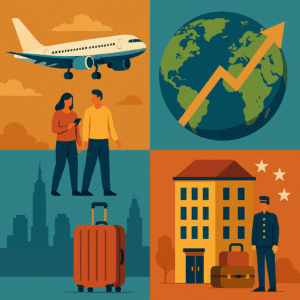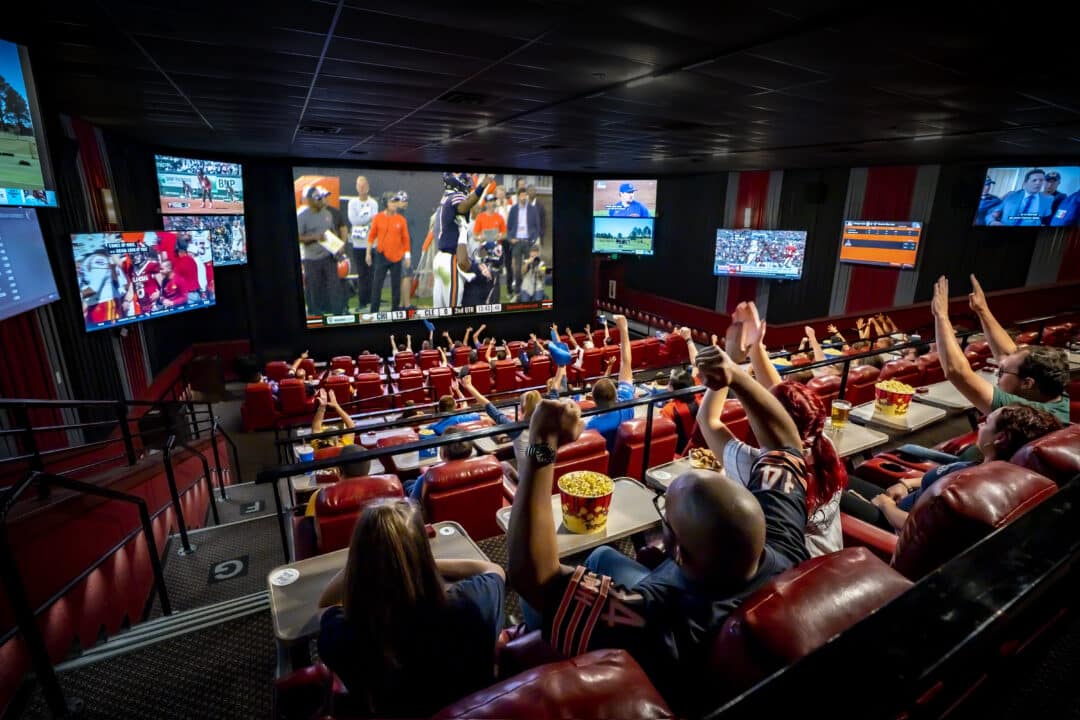
This week in industry news, travel and tourism dominate the headlines, revealing a stark contrast between global optimism and domestic caution—while international tourism forecasts for 2025 remain strong, U.S. travel trends are marked by hesitation.
Global Travel on Track to Surpass Pre-Pandemic Levels
The international community expects to see increases in travel that would be comparable to pre-pandemic numbers. The UN Tourism department predicted in January that global travel in 2025 would continue to increase, and in March, Travel News reported that India’s business travel market is rapidly recovering, further underscoring the global tourism sector’s momentum.
U.S. Tourism Faces Roadblocks Amid Economic Uncertainty
Contrastly, the new U.S. tariffs and changes in immigration policy have led to a more conservative forecast domestically. According to Hospitality Trends, 52.1% of American travelers are modifying their travel plans in response to fears of a looming economic recession. The average number of planned leisure trips in the next 12 months has dropped from 4.0 to 3.8 per person.
Specifically for Chicago, NBC 5 reported that hospitality and travel businesses are especially worried about changes – Comfort Tour Canada, which offers luxury tours to Chicago, has seen an 80% decrease in bookings as of February of this year.
Domestic Travel Still Strong, But Shifting
Despite these challenges, domestic travel remains resilient. A flash study from MMGY Travel Intelligence shows that more than 8 in 10 U.S. consumers still plan to travel for leisure over the next year. However, 80% of those travelers say they will alter their travel habits — opting for domestic destinations, shorter stays, more affordable transportation, or trips closer to home.
Interestingly, there’s also a small silver lining. According to the U.S. Travel Association, lodging demand has experienced a modest uptick, indicating that travel is not stopping — it’s just changing.
How U.S. and Chicago Tourism Businesses Can Adapt in 2025
These shifts in travel behavior present both challenges and opportunities. Here’s how tourism and hospitality businesses — especially in Chicago — can stay competitive:
1. Target Domestic Travelers
With fewer international tourists, businesses should consider shifting marketing and promotions toward U.S.-based audiences. Highlight attractions that appeal to regional road-trippers and those looking to enjoy a long weekend.
2. Offer Affordable Travel Packages
Budget-conscious travelers are looking for value. Bundle services, promote off-peak discounts, or create tiered experiences that accommodate a range of price points.
3. Incentivize Business Travel
As international business travel faces delays, there’s room to recapture corporate and group travel domestically. Offer loyalty programs, flexible booking options, or discounts for extended stays to attract business clients.




0 Comments